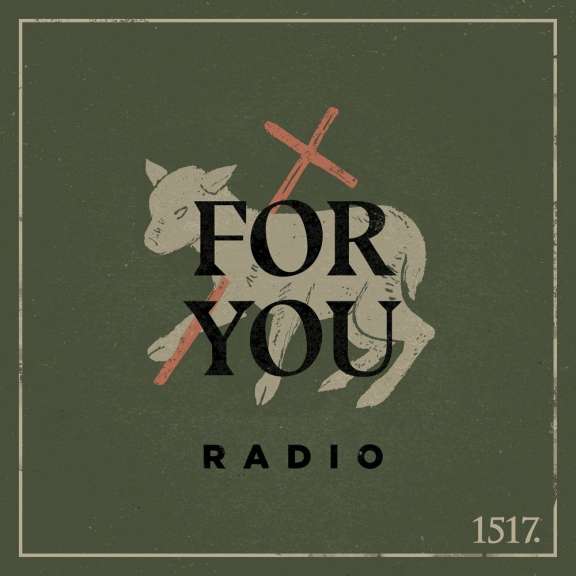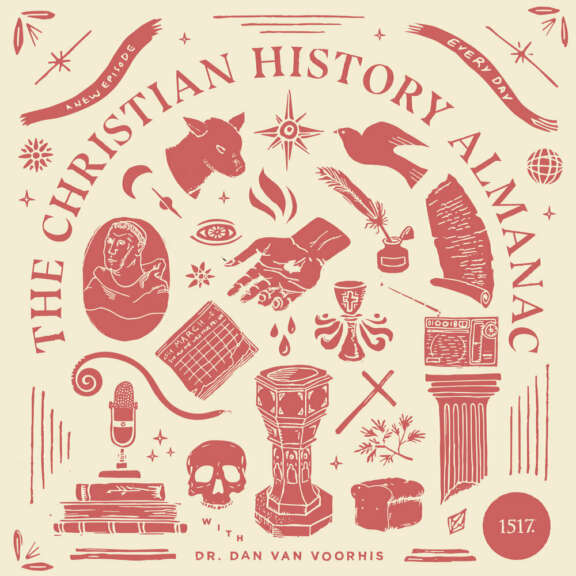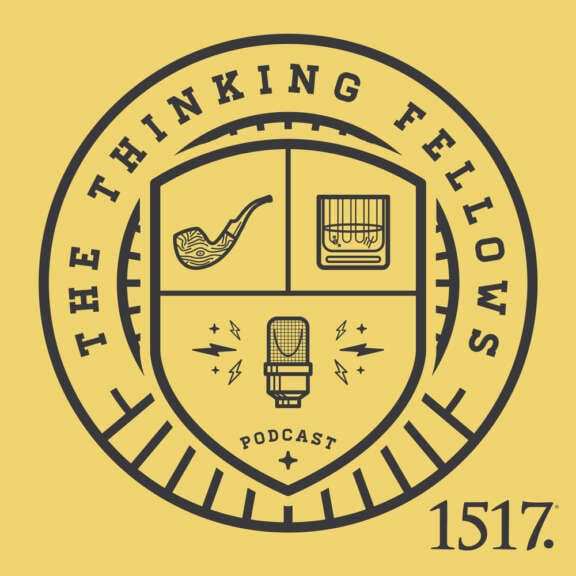Humanism, Scholasticism, ad fontes . . . how did we get to the 95 Theses and what does this mean? You can read what Luther never intended you to see in the 95 Theses.
Podcasts
Each 1517 Podcast is dedicated to delivering Christ-centered content through weekly, monthly, and seasonal audio platforms. Listen online or on your favorite podcasting app.
Author
- All Authors
- Aaron Zimmerman
- Adam Francisco
- Amy Mantravadi
- Blake Flattley
- Bob Hiller
- Bradley Gray
- Brian W. Thomas
- Bror Erickson
- Bruce Hillman
- Caleb Keith
- Chad Bird
- Chris Rosebrough
- Christopher Gillespie
- Cindy Koch
- Craig Donofrio
- Dan van Voorhis
- Daniel Deen
- Daniel Emery Price
- Darrin Sheek
- David Andersen
- David Rufner
- David Zahl
- Debi Winrich
- Delwyn Campbell
- Donavon Riley
- Doug Klembara
- Edward Killian
- Elyse Fitzpatrick
- Erick Sorensen
- Flame
- Grant Klembara
- Gretchen Ronnevik
- Haroldo Camacho
- Jacob Smith
- Jared C. Wilson
- Jeff Mallinson
- Jeffrey Pulse
- Jessica Thompson
- Jim Nestingen
- Joel Fitzpatrick
- Joel Hess
- John Andrew Schreiner
- John Bombaro
- John T. Pless
- John W. Hoyum
- John Warwick Montgomery
- Katie Koplin
- Kelsi Klembara
- Ken Sundet Jones
- Magnus Persson
- Matt Popovits
- Michael Berg
- Michael Horton
- Nick Lannon
- Paul Koch
- Peter Nafzger
- Philip Bartelt
- Raleigh Sadler
- RJ Grunewald
- Robert Kolb
- Rod Rosenbladt
- Ron Hodel
- Sam Leanza Ortiz
- Sarah Condon
- Sarah Crowder
- Scott Davis
- Scott Keith
- Steven Paulson
- Tanner Olson
- Troy Neujahr
- Uwe Siemon-Netto
- Wade Johnston
- William Cwirla
-
The year was 1680. We remember the mystic, adventurer, and self-proclaimed prophet, Antoinette Bourignon. The reading is from Kate Bowler, "Everything Happens for A Reason, and Other Lies I've Loved."
-
Elections and presidents and politics and voting. Repent and believe the good news! Everything will be ok.
-
The year was 370. We remember the story of St. Regulus' fantastic escape with the relics of St. Andrew. The reading is from Anne Brontë, "The Penitent."
-
In this episode, Blake sits down with Elyse Fitzpatrick. Elyse is a writer, speaker, and counselor who sums up her vocation as a communicator. They discuss her the writing process, and how her different forms of communication inform each other.
-
The year was 1466. We remember Desiderius Erasmus of Rotterdam. The reading is an excerpt from Psalm 60 in the Scottish Metrical Psalter of 1650.
-
Caleb and Scott are joined by Dave Zahl to talk about the religious side of COVID.
-
The year was 1978. We remember the first printing of the New International Version of the Bible. The reading is from N.T. Wright, "Simply Christian: Why Christianity Makes Sense."
-
The year was 1966. We remember the World Congress on Evangelism. Today's reading is a good word on the church's future from the Apocalypse of St. John.
-
The year was 1400. We remember the poet, servant, and pilgrim Geoffrey Chaucer. The reading comes from another English storyteller and Christian, John Bunyan, his "He Who Would Valiant Be" from the Pilgrim's Progress.
-
Stop Showing Off and Get Back in Line... In part two of our reading of Clement of Alexandria’s, The Praises of Martyrdom Those Who Offered Themselves for Martyrdom Reproved, we discuss when martyrdom isn’t martyrdom and why the topic is more relevant today than ever.
-
The year was 1923. We remember the poet, agnostic, and Christian convert Denise Levertov. The reading is from Levertov, "A Cure of Souls."




